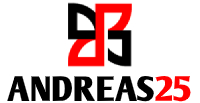The role of Professional Development Education is to provide ongoing Professional Development Education in KSA opportunities that support teachers in their teaching. Instead of one-day workshops, conferences, and other forms of teacher development, sustained learning opportunities are more effective. Such opportunities can be described as ongoing, comprehensive, aligned, and relevant to student learning. What’s more, they are often free of charge. If you are interested in learning more about the role of Professional Development Education, keep reading.
Self-Directed Learning
The concept of self-directed learning has a rich history, tracing its roots to the progressive education movement. John Dewey, the founder of the modern progressive movement, advocated for a learner-centered approach to education. According to Dewey, experience is the cornerstone of education, and students learn best when they integrate past and present experiences with their own personal interpretations of subject matter. Educators’ roles are to guide students, helping them explore the world, formulate investigative questions, and test hypotheses.
In professional development education, self-directed learning has many advantages. First of all, it creates lifelong learners who can see their own learning gaps, leverage any learning situation, and learn from mistakes. Secondly, it socializes students to be productive citizens in a rapidly changing world. Thirdly, it encourages teachers to consider the value of learning and develop new teaching methods that will benefit students. For this reason, many educators are now using self-directed learning methods in their classrooms.
Collaboration
There are numerous benefits of collaboration in professional development education. Collaboration between teachers can help them build subject knowledge, think about teaching strategies differently, and learn new ideas. Collaborative efforts are important for developing pedagogical knowledge and skills. Collaborative work is also crucial for solving pedagogical problems, and it fosters collegiality and effective teaching. Collaboration is a concern for the ultimate client of a teacher. It is also directed toward addressing immediate needs. Collaboration between teachers in the same school or district can increase understanding among educators of diverse subject areas and grade levels.
Expert Challenge
An expert problem is one that challenges the student to identify the underlying issue. Then, an expert can define the situation, constraints, and tactics necessary to solve it. A novice, on the other hand, approaches knowledge as a collection of unrelated artifacts and only tackles one aspect at a time. In the end, they never get anywhere. A good educational program will incorporate expert challenges to help educators foster expert thinking.
Talking about Professional Development Education in KSA (Kingdom of Saudi Arabia). Education system is developing in the course of time, there are tons of user, who long to get more info related to Professional Development Education in KSA. The structure of professional development education is being better then before, it is in the profess of developing. Many of the students are midgrating there for better education.
To apply for a grant, local educational agencies must conduct an assessment of their needs and explain how they will use the funds to improve teaching and learning. This must be a collaborative planning process involving local educators and a community partner. Applicants should be planning activities that will improve teaching and learning and improve student achievement. They must also demonstrate how the activities will be evaluated and how the data or assessments will be used to evaluate the programs.
Impact On Students
Among teachers, PD may have a positive impact on student behavior, but the evidence is mixed. The MTP-S intervention, for example, was associated with greater self-reported positive interactions. However, the effect on students’ self-reported positive interactions was not significant. The MTP-S intervention had few interactions with demographic variables, and it may be more effective for teachers with more experience or smaller classes.
The research on the impact of PD on student achievement has proven that if teachers undergo professional development, student achievement improves by 21 percentile points. PD helps teachers remain current with new educational technologies and curriculum standards. It transforms teachers, allowing them to create course instructions that are relevant to today’s students. One study conducted by the Institute of Education Sciences of the U.S. Department of Education concluded that professional development increased student achievement by as much as 21 percentile points.







